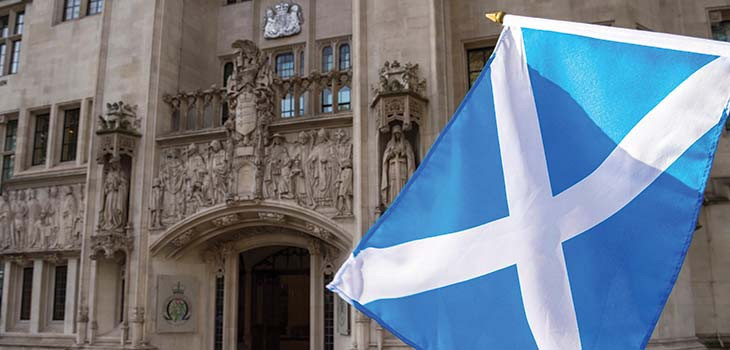
Professor Weller, of Cambridge University, looks at the court’s finding that (to paraphrase) Scotland’s people are not entitled to the right of self-determination through unilateral secession because they do not suffer from repression, exclusion or colonial rule. He explains the context behind this finding—the question of self-determination was raised as an incidental issue by the SNP, intervening, and not fully argued before the court.










